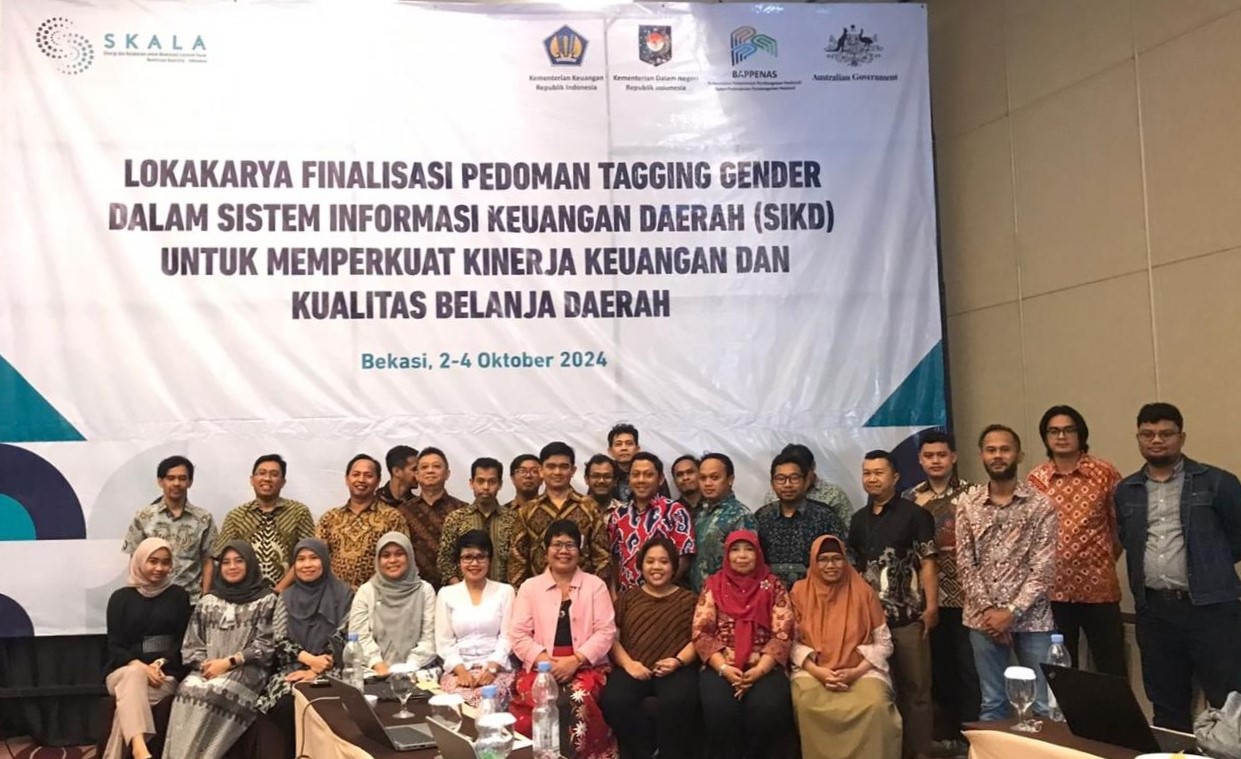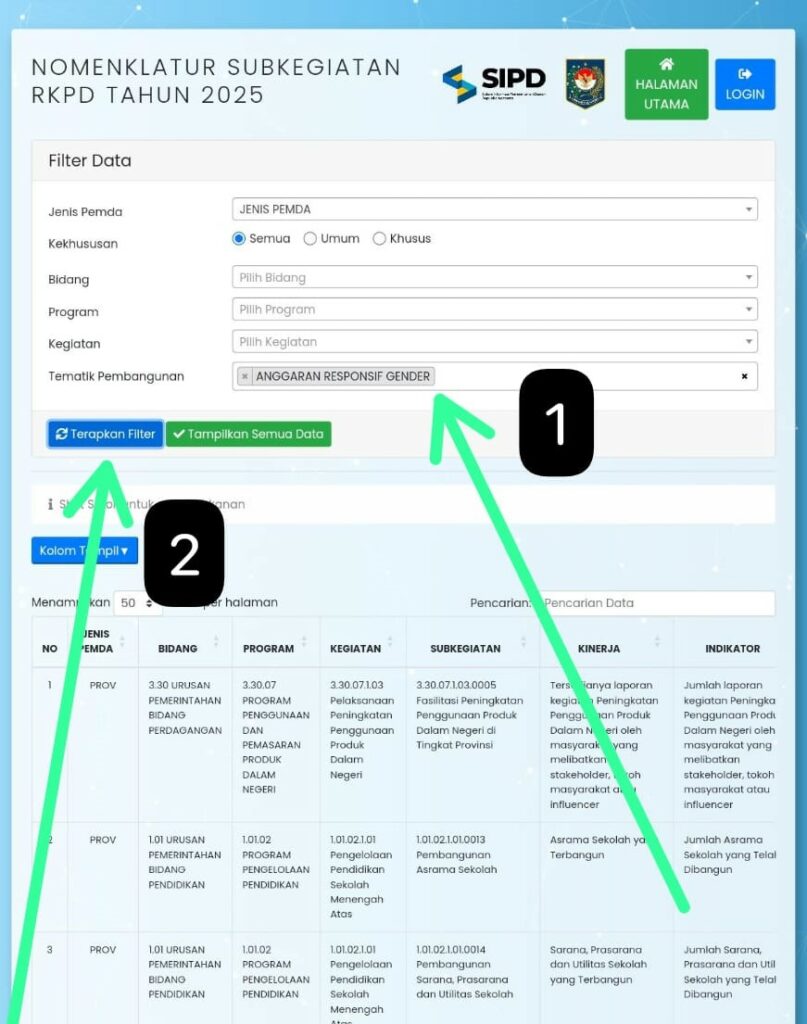Gender-Responsive Budgeting in Indonesia: Strengthening Central and Regional Planning

Gender-responsive budgeting (GRB) is an important tool to ensure that government policies and financial decisions promote gender equality. It integrates gender considerations into all stages of budgeting and addresses disparities between men and women by ensuring that public resources are allocated in a fair and equitable way. In Indonesia, both central and regional governments are working to enhance gender mainstreaming in their budgeting processes.
SKALA, in collaboration with the Ministry of Finance’s Directorate General of Fiscal Balance (DJPK), is contributing to this effort. In October 2024, SKALA and DJPK organized a workshop to develop clear guidelines for regional governments to implement gender-responsive budgeting. The workshop built on earlier efforts, including work with the Ministry of Home Affairs (MoHA) on categorizing regional spending and identifying sub-activities for tagging. These initiatives are aligned with the MoHA Decision No.90/2019, or MoHA Regulation No. 900/2023, which updates how regional development and financial planning are classified, coded, and named.
The workshop brought together key stakeholders, including representatives from the Ministry of Women’s Empowerment and Child Protection (KPPPA), MoHA’s Directorate of Regional Development Planning, Bappenas’ Directorate of Family, Women, Children, Youth, and Sports (KPAPO), and civil society organizations such as Kemitraan, Kapal Perempuan, and PATTIRO.
Integrated Gender-Responsive Budget Tagging
A key outcome was the integration of gender-responsive budget tagging into MoHA’s Regional Government Information System (SIPD). This system provides a framework for regional governments to ensure their budgeting processes are aligned with gender equality goals. The tagging system includes 812 sub-activities across seven critical sectors: health, education, social affairs, labor, MSMEs and cooperatives, trade, and women’s empowerment and child protection.

Why Gender-Responsive Budgeting Matters
- It allows the government to monitor how well public spending aligns with gender equality goals defined in long-term, medium-term, and annual development plans.
- The data generated through GRB helps national and regional governments refine their policies to address gender disparities more effectively.
- Implementing GRB requires specialized knowledge in gender analysis, which strengthens the skills of public servants and helps them identify programs that promote gender equality.
- By requiring gender-disaggregated data, GRB fosters greater accountability in how public funds are spent, ensures accuracy in budget allocation, and builds public trust.
Looking Ahead: The National Strategy for Gender Mainstreaming
The Indonesian Government is advancing its commitment to gender equality through the development of a Presidential Regulation on the National Strategy to Strengthen Gender Mainstreaming (Stranas PUG). Led by KPAPO Bappenas and KPPPA, the regulation is currently in the legal harmonization stage and will identify strategic actions to address the challenges of gender mainstreaming across the country.
While awaiting the ratification of Stranas PUG, the newly introduced gender-responsive budget tagging in SIPD serves as an important step to strengthen regional planning and budgeting. The Ministry of Home Affairs plans to promote the use of GRB tagging in the preparation of the 2026 Regional Government Budgets across Indonesia, setting the stage for a more equitable future.






